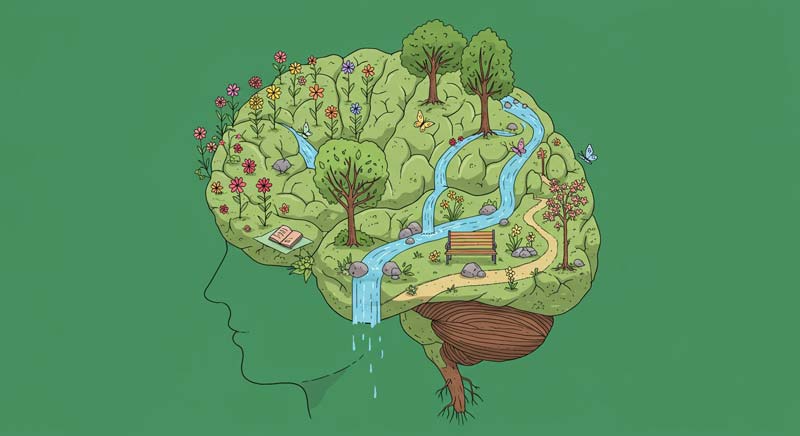Whole self-care is a multifaceted concept that encompasses various dimensions, from physical to mental well-being. It’s intriguing how we often try to simplify the most complex aspects of life into neat, tidy packages.
Today’s ‘Soul Care’ post in ‘The Word for Today’ sparked my analytical mind. I’ve maintained this daily reading habit since age 18, not for religious guidance—those days are behind me. Born Christian, I converted to Islam at 33, and now, after life’s harsh lessons, I no longer look to the sky anymore for divine interventions or answers. Yet these devotionals still resonate, offering valuable perspectives on life’s deeper aspects and whole self-care.
The passage presented an interesting metaphorical breakdown of human composition:
Someone has estimated that the average body contains enough phosphorous to make 800,000 match heads, enough sugar to make 60 cubes, enough salt to cover 20 spoons, and enough iron to make a three-inch nail. The rest is just dust and water.
The post beautifully illustrated its message about eternal soul care with a tale of a young boy who, fresh from Sunday school lessons about humans coming from dust and returning to dust, peered under his bed wondering if the dust was someone coming or going. While the original message focused on spiritual preparation, my tendency to investigate everything kicked in.
Being rather particular about scientific accuracy, I couldn’t help but examine this commonly repeated notion.
As it turns out, basic mathematics and human biology tell us:
- Phosphorus Reality: The human body contains about 0.7% phosphorus by weight. A 70kg person would have approximately 490 grams. Modern safety matches use different compounds, making this 800,000 match heads comparison more poetic than precise.
- Sugar Statistics: Our bodies don’t store table sugar. Most sugar is glycogen in the liver and muscles, totalling roughly 500 grams – closer to 10-12 teaspoons than 60 cubes. The body’s remarkable energy system is far more sophisticated than a sugar bowl.
- Salt Calculations: We carry about 90 grams of sodium ions – not table salt. That’s roughly 15 teaspoons, not 20. Though I suppose rounding up for poetic licence isn’t too egregious. After all, too little salt and we perish, too much and we suffer the same fate.
- Iron Facts: With only 4-5 grams of iron, mostly keeping our haemoglobin busy carrying oxygen, we’d struggle to forge that three-inch nail. Perhaps more of a fancy paperclip?
- Dust and Water Truth: Yes, we’re about 60% water, but calling the rest “dust” understates the remarkable matrix of proteins, lipids, and minerals that make us human.
While these poetic comparisons make for engaging metaphors, they remind us how we often package things into digestible bits. The original post used this breakdown to emphasise caring for one’s eternal soul. It got me thinking about whole self-care from another angle – our mental well-being.
Just as the Soul Care reading encourages daily spiritual reflection for eternal preparation, our mental well-being deserves the same thoughtful attention. Let’s examine some facts about this essential part of our human experience.

Whole Self-Care and Mental Health Facts
Just as the Soul Care reading used bodily metaphors to highlight spiritual needs, let’s consider our mental well-being through enlightening facts. The practice of whole self-care requires us to adopt a nuanced, comprehensive understanding.
Did you know that our mental state has far more depth and intricacy than we often acknowledge? Here are some fascinating insights that might shift your perspective on whole self-care:
- Mental health conditions affect about 18.9% of people worldwide, yet traditional treatments prevent less than 50% of cases. This reminds me of trying to fix a complex watch with only a hammer – sometimes, we need more nuanced tools.
- Our brains are remarkably adaptable. Regular mental exercises can change brain structure and function, like a muscle responding to physical training. The ancient Romans had it right with “mens sana in corpore sano” – a healthy mind in a healthy body.
- Feeling emotionally drained isn’t just in your head. Studies show that emotional stress can trigger physical changes in our bodies, from altered heart rhythms to decreased immune function. This highlights how the self-care means attending to both mind and body.
- The mind-gut connection is more than just butterflies in your stomach. Research indicates our gut microbiota may significantly influence our mental health – perhaps explaining why comfort food feels so comforting.
- It’s crucial to recognise that social connections play a significant role in mental health. Studies suggest that loneliness can be as damaging to our health as smoking 15 cigarettes daily. This emphasises the importance of feeling connected and valued in our communities.
- Sleep quality profoundly impacts mental well-being. Even one night of poor sleep can increase anxiety levels by 30%. Creating a consistent bedtime routine supports whole self-care at its most basic level.
- Mindfulness practices can physically change your brain in eight weeks, increasing grey matter in regions associated with learning, memory, and emotional regulation.
- Nature has a remarkable effect on our mental state. Just 20 minutes in a park can improve life satisfaction as much as a pay rise. Perhaps the answer isn’t always in our wallets.
- Creative activities, from doodling to playing music, can reduce stress hormones and increase feel-good chemicals in our brains. It’s like a mental spa day for your neurons.
- Helping others isn’t just lovely – it’s beneficial for mental health. Volunteering regularly is linked to reduced depression and increased life satisfaction. The act of giving becomes a form of whole self-care itself.
- Laughter truly is medicine. It reduces stress hormones, increases immune cells, and releases endorphins. Even forcing a smile can lift your mood slightly.
- Regular reading for pleasure can reduce stress levels by 68%—more effectively than listening to music or walking. Your book club might be more therapeutic than you thought.
- The way we label emotions affects how we experience them. People with larger emotional vocabularies tend to have better mental health outcomes. It may be time to expand our emotional dictionary.
Just as Soul Care guided us to look beyond our physical composition to our eternal essence, these insights remind us that mental well-being isn’t simply a matter of chemical equations or quick fixes. It’s a daily practice of attention, understanding, and gentle care – like tending to a garden where visible blooms and hidden roots need nurturing.
Sources
- Anderson ND, Damianakis T, Kröger E, et al. The benefits associated with volunteering among seniors: a critical review and recommendations for future research. Psychol Bull. 2014;140(6):1505–1533.
- Barrett LF, Gross J, Christensen TC, Benvenuto M. Knowing what you’re feeling and knowing what to do about it: Mapping the relation between emotion differentiation and emotion regulation. Cogn Emot. 2001;15(6):713–724.
- Berk LS, Felten DL, Tan SA, Bittman BB, Westengard J. Modulation of neuroimmune parameters during the eustress of humor-associated mirthful laughter. Altern Ther Health Med. 2001;7(2):62–76.
- Cassilhas RC, Tufik S, De Mello MT. Physical exercise, neuroplasticity, spatial learning and memory. Cell Mol Life Sci. 2016;73:975–983.
- Fond G.B., Lagier J.C., Honore S., Lancon C., Korchia T., Sunhary De Verville P.L., Llorca P.M., Auquier P., Guedj E., Boyer L. Microbiota-Orientated Treatments for Major Depression and Schizophrenia. Nutrients. 2020;12:1024.
- Holt-Lunstad J, Smith TB, Layton JB. Social relationships and mortality risk: a meta-analytic review. PLoS Med. 2010;7(7):e1000316.
- Hölzel BK, Carmody J, Vangel M, Congleton C, Yerramsetti SM, Gard T, Lazar SW. Mindfulness practice leads to increases in regional brain gray matter density. Psychiatry Res. 2011;191(1):36–43.
- Kaimal G, Ray K, Muniz J. Reduction of cortisol levels and participants’ responses following art making. Art Ther. 2016;33(2):74–80.
- Lewis D. Galaxy Stress Research: Mindlab International, Sussex University. 2009. Published study conducted for Mindlab International at Sussex University.
- McEwen BS. Physiology and neurobiology of stress and adaptation: central role of the brain. Physiol Rev. 2007;87(3):873–904.
- The Word for Today. 08 January 2025. Soul Care.
- Walker MP, Kahn M, Hartmann E, van der Helm E. Sleep and emotional processing: mechanisms and clinical implications. Curr Psychiatry Rep. 2020;22(2):12.
- White MP, Alcock I, Grellier J, et al. Spending at least 120 minutes a week in nature is associated with good health and wellbeing. Sci Rep. 2019;9(1):7730.
- Whiteford H.A., Ferrari A.J., Degenhardt L., Feigin V., Vos T. The global burden of mental, neurological and substance use disorders: An analysis from the Global Burden of Disease Study 2010. PLoS ONE. 2015;10:e0116820.


